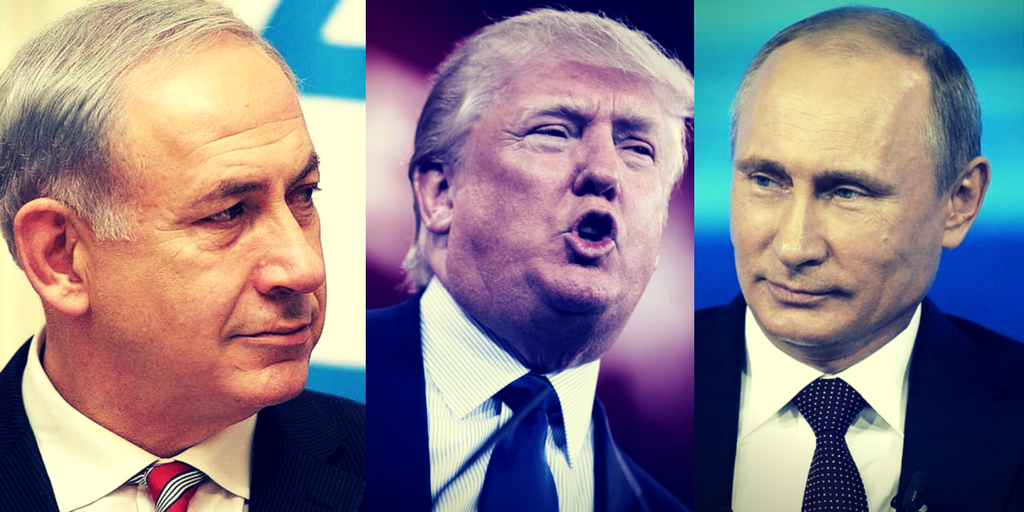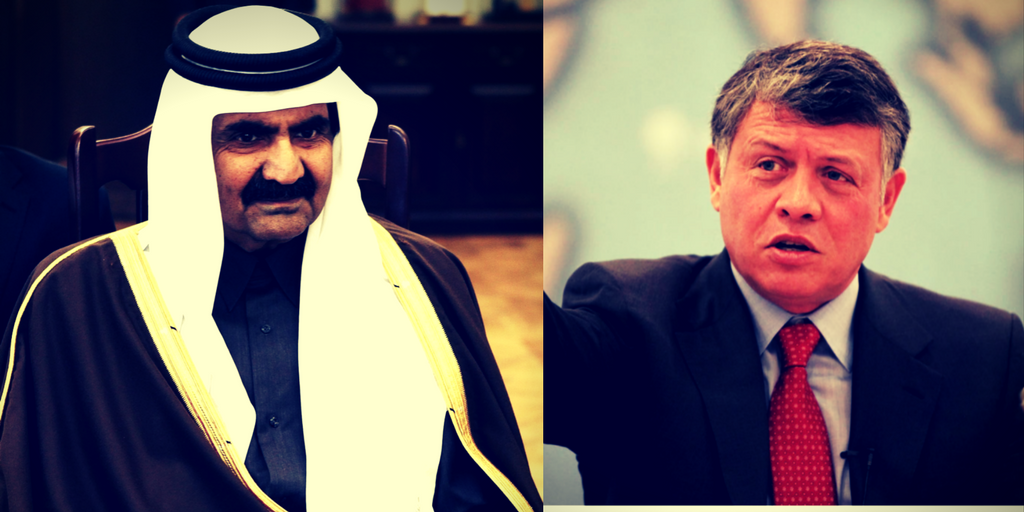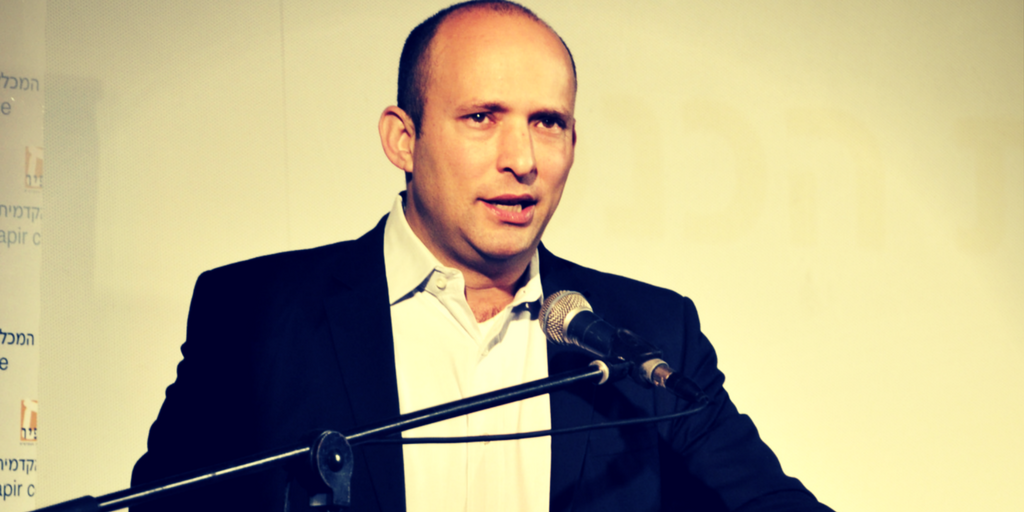U.S. voices at the United Nations (UN) and in the U.S. Congress are warning of the dangers of relying on Russia to curb Iran’s incursion deep into Syria, and warning of the treat this poses to U.S. allies, Israel and Jordan. Yet, the Trump administration seems to consider the status-quo in Syria, (minus ISIS), acceptable, essentially conceding the field to Russia when considering the future of Syria. In the meantime, verbal combat is occurring between Iran and Israel that might lead to a real war.
Earlier this month, the State Department announced a deal with Russia to expand “deconfliction zones” in southwestern Syria. It is allegedly designed to keep Iranian, Hezbollah, and Iranian recruited Shiite militias from Afghanistan, Iraq, Pakistan and Yemen, away from Syria’s borders with Israel and Jordan. But, if the Trump Administration is sincere about stopping Iran’s advance toward the Mediterranean Sea, or preventing a major conflict in the Middle East, it certainly falls short on this score. Moreover, Russia is using its air power to protect Iranian backed ground forces. The U.S., on its part, plans to end its involvement in Syria and Iraq once the Islamic State is defeated and ejected from the region. Regrettably, unlike the Russians, who have protected their Middle East allies, the U.S. appears to be abandoning their hitherto allies, the Syrian Democratic Forces, who are predominantly Kurds. This would allow the dictator, Bashar Assad, whose army slaughtered most of the 500,000 fellow Syrians using outlawed chemical weapons, to stay in power under Russian and Iranian protection.
At the UN last week, Russia vetoed the extension of a UN panel set to investigate Assad’s regimes use of chemical weapons, called the Joint Investigative Mechanism (JIM). Nikki Haley, U.S. ambassador to the UN, twitted that “By using the veto to kill the mechanism in Syria that holds users of chemical weapons accountable, Russia proves they cannot be trusted or credible as we work toward a political solution in Syria.”
At a counterterrorism conference hosted by the Hudson Institute in Washington DC, U.S. Senator Tom Cotton (R-AK) (leading member of the Senate Armed Services and Intelligence committees) had this to say about the Iranian threat to Israel. “Iran’s aggression against Israel has become much more widespread. It’s a very dangerous advance that Iran is making through northern Iraq and southern Syria. Iran is now providing not just rockets, it’s helping build precision-guided munitions factories in Syria, on the border with Lebanon, where Hezbollah can manufacture its own precision-guided munitions to use against Israel.” Cotton added, “We can’t allow the Iranian Islamic Revolutionary Guards Corps (IRGC) to have unmolested, resupply lines going from Iran to the Levant. It is not in the interest of the U.S. to have a revolutionary cause backed with the powers of a nation state expanding its influence throughout the region.”
The Iranian regime may be a threat to U.S. vital interests in the Middle East, as stated by U.S. Senator Tom Cotton, but it is a definitive existential threat to Israel. Tehran’s threats to Israel are not confined to rhetorical remarks by its leaders. It has now developed capabilities that will enable it to carry out its intentions to “destroy Israel.” The 2015 Nuclear Deal, which Iran is clearly subverting in various ways, includes developing long-range ballistic missiles and the accompanying delivery system.
Earlier this year, Mojtaba Zonour, a senior member of Iran’s National Security and Foreign Policy Commission and a former Revolutionary Guards official, commented that, “Only 7 minutes is needed for the Iranian missile to hit Tel Aviv.” He also warned that his country (Iran) “would immediately strike Israel if the U.S. makes a mistake.”
Reuters reported (11/18/2017) that Iranian military chief-of-staff General Mohammad Baqeri said that the Islamic Republic would not accept Israeli violations of Syria, according to the Islamic Republic News Agency (IRNA). Baqeri stated during a visit to Damascus that, “It is not acceptable for the Zionist regime to violate Syria anytime it wants.”
Israel’s Defense Minister, Avigdor Lieberman, on a visit to Israel’s northern border last week stated that, “Israel is prepared and ready for all eventualities.” He added that Israel will reserve its absolute freedom of action. He said that Israel won’t allow Iranian bases in Syria, and will not permit southwestern Syria to become a forward outpost against Israel.
Lieberman was accompanied on his visit with Israel’s Defense Forces (IDF) Chief-of-Staff Gadi Eizenkot, and senior IDF generals. It reflects Israel’s concerns over the recent Iranian moves that includes efforts to erect a permanent base on Syrian soil. Iran, it appears, is seeking to upgrade its threats against Israel, should her nuclear facilities be attacked, hence, an Iranian presence in Syria is extremely dangerous for Israel. In addition, Israel fears that in the near future, Iran might transfer to Syria advanced anti-aircraft and land-to-sea missiles that will directly threaten Israel’s freedom of navigation and its aircraft.
Behind the warlike declaration delivered over microphones, Israel is investing heavily in worldwide briefings, and in particular, appealing to Washington. Israeli representatives are explaining to officials the dangers of a permanent Iranian presence in Syria. Hitherto, the U.S. administration has shown little interest in acting on it.
When the dust of war clears over Syria, Bashar Assad, the butcher of Damascus, will be the winner in the civil war. The true rulers of Syria will be however, the Russians. Putin’s diplomats tell every side what they want to hear, including Israel. It is clear nonetheless that the Russians see their interests coincide with that of Iran. Sergey Lavrov, Russia’s foreign Minister, confirmed that last week when he suggested that the Iranian presence in Syria is “legitimate.” On October 16, 2017, Russian Defense Minister Sergei Shoigu, visited Israel after Israeli Air Force (IAF) planes conducting a photography mission over Lebanon, were fired upon by an anti-aircraft SA-5 battery of the Syrian army. A quartet of Israeli jets took off from an IAF base, and with four precise bombs, made direct hits and destroyed the radar unit launcher and the firing battery. In meetings with PM Netanyahu and DM Lieberman, Shoigu offered little practical solutions in dealing with Iranian expansionism.
According to the London-based Asharq Al-Awsat, Russia has rejected Israel’s request for a 40 kilometer buffer zone from the Israeli Golan Heights border, but was willing to expand a 10-15 kilometer zone, which will be off-limits to Iranian forces.
The escalating war of words between Jerusalem and Tehran can easily turn from verbal volleys to missiles flying on all sides. Although none of the parties want to be dragged into a war, the escalating threats and counter threats have their own dynamic force, and wars break out as a result of misunderstandings between enemies. This is an explosive situation that the Trump administration must not ignore. It is time for the U.S. to flex some muscle in Syria.
Oringally Published in FrontpageMag.





